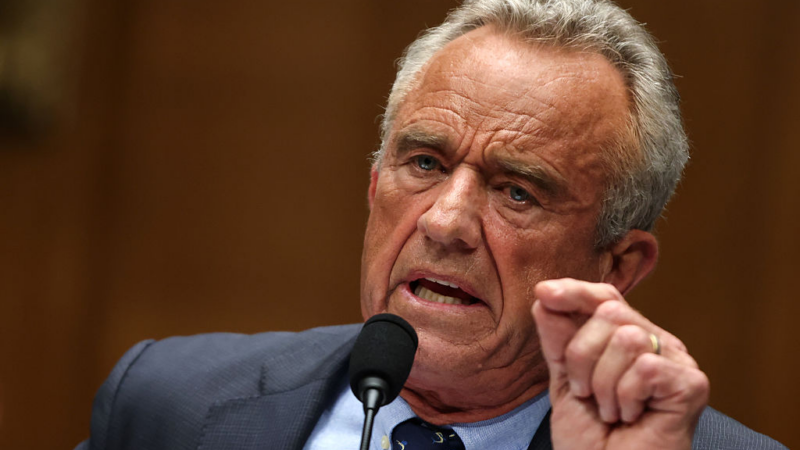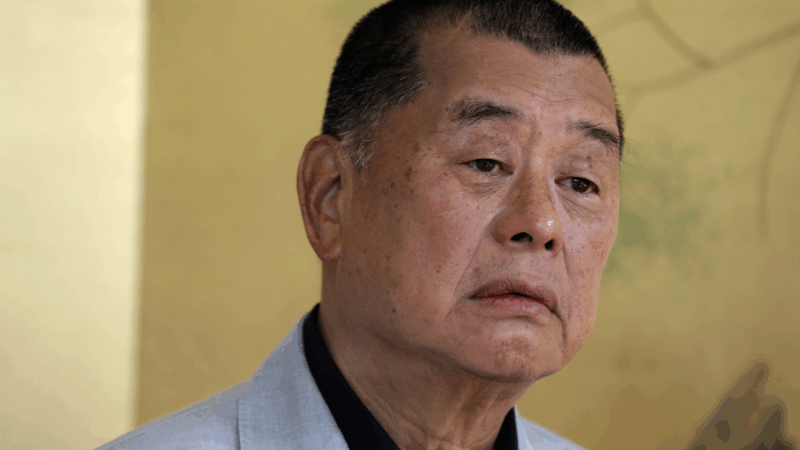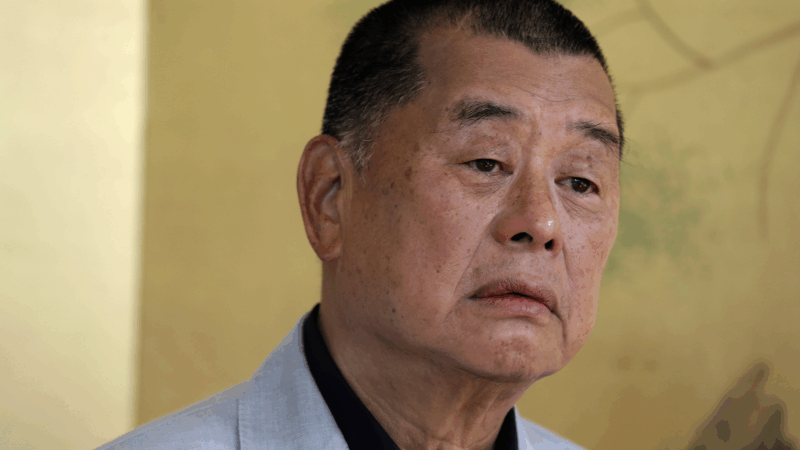MAHA Commission report paints a dark picture of U.S. children’s health
The Trump administration released a sweeping report Thursday, offering its analysis of what’s driving chronic disease among the nation’s children.
The report titled, “The MAHA Report: Make Our Children Healthy Again” catalogues a range of drivers behind what it describes as a “chronic disease crisis,” including high rates of obesity, asthma, autoimmune conditions and behavioral health disorders among kids.
The 72-page document is a product of the MAHA Commission, which was established by President Trump through an executive order on Feb. 13. The commission, chaired by Health Secretary Robert F. Kennedy, Jr., enlisted various cabinet members, including the Secretaries of Agriculture and Education and the head of the Environmental Protection Agency, and met in private over the last few months.
Much of the report reflects priorities Kennedy has discussed during recent public appearances.
It identifies four major drivers for childhood chronic illness: poor diet, environmental chemicals, chronic stress and lack of physical activity, and overmedicalization. In keeping with the messaging that has animated the MAHA alliance, the report pins the blame, in part, on conflicts of interest and corporate influence in the food, chemical and pharmaceutical industries.
The report says it will be used by the MAHA Commission to develop a strategy for the administration to implement within 180 days of the February executive order.
The broad strokes of the analysis reflect concerns that researchers in public health have raised for many years, particularly related to nutrition, lifestyle and exposure to pollution and other harmful chemicals in our food and environment.
“This is a real American problem, and it’s not one that we’re seeing quite so dramatically in other countries,” says Dr. James Perrin, a professor of pediatrics at Harvard Medical School.
But the report also underscores what has troubled many in public health and medicine since the inception of the MAHA platform.
Notably absent is a thorough discussion of how socioeconomic factors like poverty are the underlying drivers of why some children are faring so poorly. And exactly how this monumental public health challenge will be solved isn’t clear, given ongoing cuts to public health infrastructure, including staff, grants and contracts, and the administration’s desire to roll back regulations.
“They make a great diagnosis and they have a very weak treatment plan,” says Dr. Philip Landrigan, a professor of pediatrics at Boston College. “It’s impossible to read this report and not think about the disconnect between the noble words in this report and the reality of what the Kennedy team is doing on the ground to EPA and CDC and the National Institutes of Health.”
Another concern? The report also questions vaccine safety and suggests that possible links to childhood disease have not been thoroughly studied.
“That is simply not true. There have been abundant studies,” says Landrigan.
The report sketches out a range of proposed solutions to the problems it outline, including asking the National Institutes of Health to fund new trials on whole-food diets and on potentially harmful ingredients in the food supply; pushing NIH and the Food and Drug Administration to improve post-marketing surveillance of pediatric drugs; supporting new pediatric drug safety research; and launching a national lifestyle-medicine initiative.
It’s not clear where the funds or staffing will come from for these priorities.
China critic and former media tycoon Jimmy Lai is sentenced to 20 years in a Hong Kong security case
Jimmy Lai, the pro-democracy former Hong Kong media tycoon and a fierce critic of Beijing, was sentenced on Monday to 20 years in prison in the longest punishment given so far under a China-imposed national security law that has virtually silenced the city's dissent.
China critic and former media tycoon Jimmy Lai is sentenced to 20 years in a Hong Kong security case
Jimmy Lai, the pro-democracy former Hong Kong media tycoon and a fierce critic of Beijing, was sentenced on Monday to 20 years in prison in the longest punishment given so far under a China-imposed national security law that has virtually silenced the city's dissent.
Center-left Socialist candidate wins over populist in Portugal’s presidential runoff
Center-left Socialist candidate António José Seguro recorded a thumping victory over hard-right populist André Ventura in Portugal's runoff presidential election Sunday, according to official results.
Seahawks win Super Bowl title, pounding the Patriots 29-13
Seattle's "Dark Side" defense helped Sam Darnold become the first quarterback in the 2018 draft class to win a Super Bowl, to win the franchise's second title.
No, that wasn’t Liam Conejo Ramos in Bad Bunny’s Super Bowl halftime show
A publicist for Bad Bunny confirmed to NPR that the little boy in a blue bunny hat detained by ICE in Minneapolis last month did not participate in the Super Bowl halftime show.
March for Life attendees may have been exposed to measles, DC Health warns
D.C. health officials are contacting people possibly exposed to measles at the March for Life in January, as confirmed cases rise nationwide.








